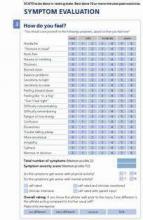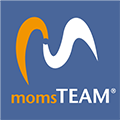
Strict physical and cognitive rest in the five days immediately after concussion does not help teens recover more quickly than taking it easy for one to two days after injury and then returning to school, finds a new study. (Thomas, 2015)
The mainstay of concussion management for children and teens is both cognitive and physical rest after injury followed by a gradual, symptom-limited, return to activity. (Meehan, 2015). As several medical groups (McCrory, 2013; Halstead, 2010; Giza 2013) have noted, however, the evidence on which the recommendation for rest is based is sparse, due, in part, to the difficult nature of quantifying and tracking levels of physical and, particularly, cognitive activity.
Researchers at the Medical College of Wisconsin took this challenge head on. 88 patients aged 11 to 22 years seen in a pediatric emergency department after concussion were randomly assigned into two groups, one half prescribed strict rest at home, including no school, work or physical activity, followed by a stepwise return to activity, while the other half were asked to follow whatever recommendations were prescribed by the treating ER physician, most of whom - consistent with best practices outlined by the Centers for Disease Control (Langlois, 2008) - instructed patients to rest for 1 or 2 days and then return to school and a stepwise return to physical activity after symptoms had resolved.
Surprisingly, the data showed that there was no clinically significant difference in neurocognitive or balance outcomes between the two groups. Indeed, the group advised to rest for five days reported more daily post-concussive symptoms during the first 10 days after their emergency department visit and slower resolution of symptoms than those who rested for 1 to 2 days and then returned to school.
The study was unable to explain the difference in symptom reporting, noting that it was possible that the discharge instructions influenced the patients' perception of illness, leading them to report more symptoms. The authors also said the deleterious effects of strict rest they observed may have more to do with emotional distress caused by school activity and activity restriction, because missing social interactions and falling behind academically may cause concussed student-athletes to become depressed, increasing physical and emotional symptoms.
Reviewing the results of previous pediatric studies which demonstrated an association with rest and outcome after concussion, Thomas said the studies, taken together, showed that the "current usual care endorsing modest physical and cognitive rest after injury is an effective strategy for recovery."
In a commentary accompanying the Pediatrics article, Dr. William Meehan of the Micheli Center for Sports Injury Prevention and Director of the Sports Concussion Clinic at Boston Children's Hospital, and his colleague, Dr. Richard Bachur, applauded Dr. Thomas and his co-authors for adding some data on which to base recommendations for rest after concussion (which includes one [Brown, 2014] on which Dr. Meehan was a co-author), but acknowledged that the optimal duration of rest after concussion remains unknown.
"Indeed, the optimal period of rest," they said, "may vary, depending on age, gender, point in the calendar year, initial symptom level, the particular symptoms that predominate, the level of cognitive function, or other variables." Given the existing evidence, and current consensus recommendations [Broglio, 2014; Giza, 2013; McCrory, 2013; Halstead, 2010), previous investigations (Majerske, 2008; Moser, 2012; Brown, 2014; Moser, 2014], and the Thomas study, they concluded that "a recommendation of reasonable rest for the first few days after a concussion followed by a gradual resumption of cognitive activities seems prudent."
They noted that resumption of cognitive activities by student-athletes who remain symptomatic may require instituting academic accommodations, and that such patients may benefit, after a period of rest, from a gradual resumption of aerobic exercise as tolerated by symptoms, provided no increased risk of trauma to the head. (Although, once again, they admitted that the timing of the initiation of exercise after injury remains unknown.)
"Given the variability of forces involved in different concussive injuries, the different symptom clusters and burdens experienced by patients who sustain concussions, and the observed variability of recovery patterns after concussion," Drs. Meehan and Bachur stated, however, that "the entire plan for managing a concussion should not be determined in the emergency department. Rather, a few days of rest followed by prompt follow-up with the pediatrician, sports medicine physician, or other capable provider should be recommended, and each management plan should be tailored to each individual patient."
Study raises questions
Commenting on the Thomas study, sports concussion neuropsychologist, Dr. Rosemarie Scolaro Moser, Director of the Sports Concussion Center of New Jersey and author of two of previous studies on the effect of cognitive rest on concussion recovery (Moser, 2012; Moser, 2014), said in an email that, while the study, in which she was not involved, added to the growing but yet still sparse group of studies about rest for concussion treatment, the findings did not, in her view, "negate previous study results, but add[ed] more questions."
Dr. Moser observed that the "strict" rest group may not have been as "strict" as portrayed in the Thomas study since all participants (both groups) had to keep diaries and log their activities, which is "not something that is consistent with strict rest." And, observed Moser, the authors acknowledged that, although the two groups differed in their cognitive activity (with the strict rest group missing more school), the recommendation for strict rest did not significantly alter the amount of physical activity between groups. If that meant that both groups were equally physically active, Moser said, then that "would also bring into question to what extent the two groups were really different," such that the fact that both groups were keeping logs and being equally physically active could negate any differences in symptom resolution between groups."
As did the study's authors, Moser also highlighted some of the study's limitations. "For example," she said, "the study did not follow the patients after 10 days. Patients with complaints that last greater than 10 days are likely different from those with longer lasting symptoms." She also noted that patients who show up in EDs with acute symptoms are likely different from those who seek services after the incident at a sports concussion facility such as hers. Indeed, her previous studies demonstrated the benefits of rest for those who suffer from symptoms for longer periods of time when seen in a concussion clinic. "Thus the sample groups across studies are not equivalent, which can account for the differences in study findings."
Another perspective
Dr. Philp Schatz, a professor of psychology at St. Joseph's University in Philadelphia, a co-author with Dr. Moser of her studies on the effect of cognitive rest on concussion recovery, and her colleague at the Sports Concussion Center of New Jersey, echoed many of Dr. Moser's comments.
Dr. Schatz noted, first, while the sample was composed of children, ages 11-22, who reported to the emergency department within 24 hours of sustaining a direct or transmitted force to the head, it was not restricted to sports-related concussion, with only 30% sustaining injuries through sports.
Second, while the patients were randomly assigned to either an "intervention" group (strict rest, defined as 5 days of no school, work, physical activity) or "control" group (normal care, defined as 1-2 days rest, then return to school, step-wise return to physical activity after symptoms resolve) and that were not significantly different in terms of demographic variables, the "strict rest" group was older by approximately 1.5 years.
Third, Dr. Schatz observed that, despite recommendations for "strict" rest, the intervention group still reported an average of nearly 5 hours of high and moderate mental activity, and an average of nearly 4 hours school and after-school mental activity during the "extra" days of rest (e.g. days two through five), which he said " call into question the level of compliance with the 'strict' restrictions in the intervention group."
Fourth, Dr. Schatz observed that, while the study defined resolution of symptoms as when a patient achieved a total Post-Concussive Symptom Scale (PCSS) score equal to or less than 7, it provided no rationale for this cut-off, nor any supporting references from the literature. Indeed, he noted that, because the PCSS lists 22 symptoms which are not specific to concussion and overlap with other disorders (e.g. sleep disturbances, depression, attention deficit disorder), some non-injured adolescents may report concussion-related symptoms during baseline testing. A majority of non-concussed high school athletes report concussion-related symptoms at baseline, and the ImPACT Clinical Interpretation Manual documents a mean symptom score of 4.8 for high school-aged boys (with a 1 SD range up to 12.7) and 7.7 for high school aged girls (with a 1 SD range up to 21.4). In addition, Iverson and colleagues document a decrease of 10 points on the PCSS as indicative of significant (or reliable) change, such that an athlete should show changes relative to their own previous scores and not be expected to surpass an arbitrary threshold. Combined, these data raise questions regarding the validity of the use of a PCSS cut-off of 7 as a metric for symptom resolution.
Finally, Dr. Schatz pointed out that the majority of athletes tend to recover from concussion-related injuries within 7 to 10 days, so the lack of difference between groups does not document the utility of rest for athletes who experience symptoms beyond the 10-day range. One quarter (24%) of the subjects in the control group and 35% of the subjects in the intervention group still reported experiencing concussion-like symptoms at Day 10. While the authors concluded "it took longer for 50% of the intervention group to report symptom resolution," they also note that the overall proportion of patients reporting that they were no longer experiencing concussion symptoms at that time was not statistically significant.
Given these questions and concerns, Dr. Schatz joined Dr. Moser, and others, in saying that "there remains a need for rigorous investigation of the role and efficacy of post-concussive rest."
Don't throw baby out with bathwater
In her final comments on the study, Dr. Moser, like Drs. Meehan and Bachur, made a point of emphasizing that "no two concussions are alike." Some student-athletes only experience symptoms for a few days immediately after concussion, while others continue with chronic symptoms. "We [still] do not yet have any clear way of determining mild versus severe concussion at the initial onset. In large group studies in which we have no way of knowing who will really need that longer course of rest, it may be difficult to generate statistically significant findings."
As a result, Moser cautioned against clinicians "throwing the baby out with the bath water: we need to consider each concussion carefully, and not be rigid or 'cookbooky' in our treatment recommendations."
Broglio SP, et al. National Athletic Trainers' Association Position Statement: Management of Sport Concussion. J Athl Train. 2014;49(1):000-000. doi: 10.4085/1062-6050-49.1.07 (epub March 10, 2014).
Brown NJ, Mannix RC, O'Brien MJ, Gostine D, Collins MW, Meehan WP. Effect of Cognitive Activity Level on Duration of Post-Concussion Symptoms. Pediatrics 2014;133(2):1-6.
Giza CC, Kutcher JS, Ashwal S, et al. Summary of evidence-based guideline update: evaluation and management of concussion in sports: report of the Guideline Development Subcommittee of the American Academy of Neurology. Neurology. 2013;80(24):2250-2257
Halstead ME, Walter KD; Council on Sports Medicine and Fitness. American Academy of Pediatrics. Clinical report- sport-related concussion in children and adolescents. Pediatrics. 2010;126(3): 597-615.
Harmon K, Drezner J, Gammons M, et al. American Medical Society for Sports Medicine position statement: concussion in sport. Br J Sports Med. 2013;47:15-26.
Iverson GL, Lovell MR, Collins MW. Interpreting change on ImPACT following sport concussion. The Clinical Neuropsychologist 2003;17(4):460 - 467
Langlois J. Heads Up: Brain Injury in Your Practice. A Tool Kit for Physicians. Atlanta, GA: Centers for Disease Control and Prevention; 2008
Leddy JJ, Kozlowski K, Donnelly JP, Pendergast DR, Epstein LH, Willer B. A preliminary study of subsymptom threshold exercise training for refractory post-concussion syndrome. Clin J Sport Med. 2010;20(1):21-27
Majerske CW, Mihalik JP, Ren D, et al. Concussion in sport: postconcussive activity levels, symptoms, and neurcognitive performance. J Athl Tr. 2008;43(3):265-274.
McCrory P, Meeuwisse W, Aubry M, et al. Consensus statement on concussion in sport-the 4th International Conference on Concussion in Sport held in Zurich, November 2012. Clin J Sport Med. 2013; 23(2):89-117
Meehan WP, Bachur RG. The Recommendation for Rest Following Acute Concussion. Pediatrics. 2015;135(2). DOI:10.1542/peds.2014-3665 (e-published January 5, 2015).
Moser RS, Glatts C, Schatz P. Efficacy of Immediate and Delayed Cognitive and Physical Rest for Treatment of Sport-Related Concussion. J Pediatrics 2012;161(5):922-926.
Moser R, Schatz P, Glenn M, Kollias K, Iverson G. Examining prescribed rest as treatment for adolescents who are slow to recover from concussion. Brain Inj. 2014; Early Online: 1-6 DOI: 10.3109/02699052.2014.964771 (e-published ahead of print October 1, 2014)
Schneider K, Iverson G, Emery C, McCrory P, Herring S, Meeuwisse W. The effects of rest and treatment following sport-related concussion: a systematic review of the literature. Br J Sports Med 2013;47:304-307.
Thomas DG, Apps JN, Hoffman RG, McCrea M, Hammeke T. Benefits of Strict Rest After Acute Concussion: A Randomized Controlled Trial. Pediatrics 2015;135(2). DOI:10.1542/peds2014-0966 (e-published ahead of print, January 5, 2015)



